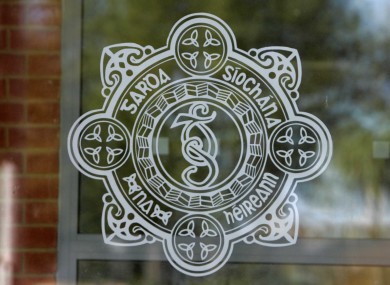INTERVIEW: Tom Brady, Security Correspondent, Irish Independent

Few journalists in Ireland have the depth of professional experience in covering Garda affairs as Irish Independent Security Correspondent Tom Brady. Over a career spanning five decades the Kildare man has witnessed first-hand the evolution of the force over the years and is a highly-respected authority on all Garda and security matters.
There can be no more interesting time to seek the opinion of someone as experienced as Mr. Brady than the present. This has been a tumultuous year for An Garda Siochana and the recent Garda conferences of all ranks across the country granted many within the force the opportunity to air their frustrations and grievances at recent controversial developments. Tom Brady has attended and reported on these conferences for many years and is well positioned to analyse the feeling amongst all ranks on some of the more pervasive issues facing the force.
Martin Cusack of Garda Post got in contact with Tom for a brief interview and asked him about some of these comments and other events at the GRA conference, as well as his experiences as a journalist over the course of his career.
To begin with Tom, how did you get your first start in journalism and when did you join the Irish Independent as security correspondent?
I’m from County Kildare and have always had an interest in journalism since my school days. I started covering sports matches, particularly college football matches, for the Sunday Independent and the Sunday Press. I started out writing for the Leinster Leader in 1969, and did three years there before joining the Irish Press in 1972. I first began writing as a security correspondent in 1970. Later on, I became a news editor at the Irish Press before leaving in 1989 to join the Irish Independent. I’ve been the security correspondent here at the Independent ever since.
At the recent Garda rank and file conferences alot of understandable grievances were aired by Gardaí about what they saw as the effective removal from office of former Commissioner Martin Callinan. What is your view in this regard?
I would agree with them. While it’s unusual to hear a serving member of the force coming out and articulating this, they were only saying what most people in the force believed to have happened. It was very clear from speaking to senior politicians – my colleagues spoke to some of them after the Cabinet meeting on that Tuesday night – that they badly needed a head to roll to avoid any rift in the coalition and a possible split-up of the government, and unfortunately it was Martin Callinan’s head that they went for. There was absolutely no doubt that the whole thing was engineered and that he became a victim of what has been described as “political machinations”.
In your own view, as someone from the outside looking in, do politicians have too much influence on Garda policy and on policing in general?
Certainly the way politicians are wielding their influence at the moment would strongly suggest that they should not have as much influence as they are having. What happened with Martin Callinan is something that we had not seen in decades, since former Commissioner Ned Garvey was fired. Garvey subsequently went to the courts and successfully pursued compensation but still took a long time to clear his name and nothing can make up for the ordeal that he must have faced as a result of that. Of course, Martin Callinan wasn’t officially fired – but its clear looking at the circumstances in which he left that he had been given no option but to go.
An issue which was raised at the GRA Conference was the issue of firearms and firearms training. One officer, Garda Jim Mulligan, said that members of the force were sometimes at risk of being disciplined if they took decisive action in certain situations. What is your opinion of the whole firearms issue and what lies in store for the Gardai in respect of this issue?
I think An Garda Siochana have made it very clear that they have no intention of becoming an armed force. It has served them very well in the past and it still serves them well in the present to be an unarmed force. There were concerns that too many people could have access to guns and that it is perhaps better to have clear guidelines on who should have access to them and ensure that these members of the force are properly trained….and we have seen a further move in that direction with the decision to put the Regional Support Units on a full-time basis, operating as an armed force.
The Regional Support Units have also recently relieved the burden on the overstretched Emergency Response Units, as the ERU had been getting call-outs from all over the country and can now concentrate on Dublin in particular, and also on major operations against organised crime and against subversive gangs.
Many people in rural communities are quite aggrieved that in the recent past they have been left in what they feel is a vulnerable position as a result of station closures and staff cuts in rural areas, a sense compounded by a rise in violent crime in these areas. On the subject of rural policing, what can Gardai do to reassure rural communities that they have not been abandoned by the Gardai?
A number of promises were made when these Garda stations were shut down. There is no doubt that some of them were there in name only, so it was no big deal when they did finally shut down. But there were others that were functioning well as stations and it was promised that there would be measures introduced to replace them by, for example, holding Garda clinics in local buildings and a having a lot more liaisons between Gardai and local community groups, even it was from a distance. A lot more meetings and consultations were planned to take place to make for the fact that they did not have the local Garda there on the street all the time. A lot of these plans have not been followed through and I think they have been very slow in moving on this once the decision had been made. There had been talk of shutting down garda stations for decades and finally when the decision was taken they had promised that there would be a follow-through and that still has not really happened.
The murder of Garda Adrian Donohue in 2013 sent shock-waves through the force and indeed throughout the entire country. What did this case tell us about the changing profile of crime in Ireland?
Well mainly it was evidence, if further evidence was needed, that these people don’t care who they kill in order to achieve their ends. I think initially, people were saying that it must have been a subversive gang but it appears that they weren’t, and that these were just members of an ordinary criminal group. There’s no doubt that when you are talking about that part of the country there is very often a blurring of the lines between the two, but this was always going to be a difficult investigation for the Gardai. They are still working away on it and they are making progress, however slow, and are getting a lot of help not just from the PSNI but also from police forces overseas. I think they are still fairly confident that they will end up with the result that they want and that these people will be brought before the courts.
Problems associated with the promotion system within the Gardai have also been debated both outside and within the force. What are some of your thoughts on that subject?
Well, there are going to be promotions within an organisation like the Gardai and I think it’s vital that those on the interview board have some idea of what is needed and also of the expertise of the candidate. I think it would be a backward step to have a group of civilians in charge of the whole process because they will end up with people who will do a good interview being promoted solely on the basis of that interview, and they may not be necessarily much use at the next rank. Some of the complaints raised at the conference were certainly issues that need to be looked at, for example the issue of people with connections being given precedence over others who may not have had the same pull – whether it’s political pull with a capital “P” or internal pull because they may know someone within the job. That kind of thing is disruptive and badly damages morale within the ranks, so I would certainly not hand over control of the promotion process totally to civilians.
In terms of your professional relationship with An Garda Siochana over the course of your career, how have you found them to deal with over the years?
Well certainly there have been some fine policemen and some excellent commissioners that I have dealt with over the years. By and large I find the force to be a very professional outfit to deal with, although at times there have been difficulties in getting access to information at particular times… that situation arises every so often. I’ve certainly discovered that there when there are difficulties everybody seems to retreat into a shell, but you have to realise that simply not giving access to the media does not mean that the issue will go away…..once you create a vacuum that vacuum will be filled, and the problem is that if the truth is not being given then it can be distorted by information coming from a lesser source and that is the danger….anyone who thinks otherwise is living in a dream-world. I think there has to be a good working relationship between the Gardai and the media and when there is one it works to the advantage of everybody. I think that those Gardai who are opposed to giving information either directly to the media or to press officers should realise that it is in their interests as well as everybody else’s to maintain that working relationship.
To finish with Tom, in terms of the future of the Gardai, do you think that they have the ability to continue to adapt to changing times in order to adequately react to the evolving profile of crime that we discussed earlier?
I have no doubt that they will be able to adapt to any changes that are made operationally, they certainly always have in the past. There have been a lot of changes over the past several decades – you had the growth in subversion here that posed a whole new problem for the Garda force at that time, and they managed to cope well with that. Then you had the rise in drug crime – it took them a while to get to grips with that problem but they did – and with organised crime generally. So any of the operational problems I think they can cope with, the danger is that fallout from the current controversies that we have will lead to knee-jerk reactions…I hope that we won’t have any knee-jerk policies or changes brought in. One thing that I would not agree with is appointing a new Commissioner from outside the force. We have seen in other forces where people are brought in from abroad and it hasn’t worked out in many cases. I think that whoever he or she is that is eventually appointed to succeed Martin Callinan on a permanent basis should be a serving police officer and somebody who has extensive knowledge of how policing works here.
Tom Brady, Irish Independent


